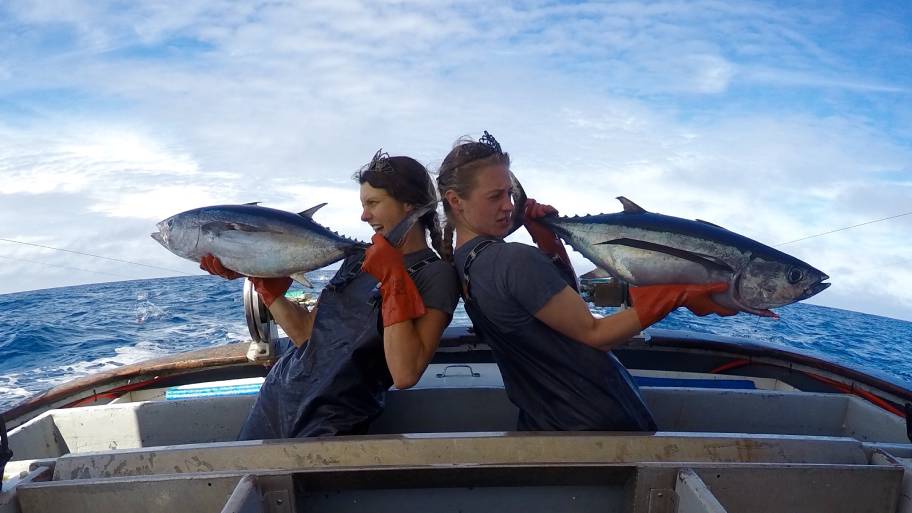For a fishery to achieve MSC certification is no small feat. So when a fishery seeks certification, it’s testament to the commitment of the fishery to keeping our oceans healthy and full of fish for future generations. One fishery that recently received recertification is Western Fishboat Owners Association (WFOA), which fishes for wild Pacific albacore tuna in the North Pacific Ocean and to a lesser extent, the South Pacific Ocean.
WFOA is a nonprofit association representing about 300 family-owned albacore fishing vessels and supporting coastal businesses. What’s more, WFOA is involved in fisheries management issues at state, federal, and international levels. Pacific albacore is a highly migratory species and is found throughout the world, often crossing entire oceans during migration. Because the fishes’ domain is so vast, fisheries like WFOA depend on cooperative international agreements and management to ensure abundance of the species. It’s important to WFOA that its fishermen source responsibly in both US and international waters.
WFOA has been MSC certified since 2010 and its members fish for albacore with hook and line – the same way commercial fishermen have been harvesting albacore off the west coast for more than 100 years! Plus, tuna is the third most consumed seafood in the US, so it comes as no surprise that maintaining a sustainable fishery for generations to come is among WFOA’s top priorities.
To assess if a fishery is sustainable and well-management, fisheries are audited against the MSC Fisheries Standard, which reflects the most up-to-date understanding of internationally accepted fisheries science and management. Our teams continuously review and develop the Standard in consultation with scientists, the fishing industry, and conservation groups.
When a fishery enters MSC assessment, it is audited by an accredited, independent certifier called a Conformity Assessment Body (CAB). The assessment period, typically lasting anywhere from 12-18 months, consists of a rigorous review. When the CAB has determined that a fishery meets the MSC Standard, it means the fishery is meeting the core principles of MSC sustainability: leaving enough fish stocks in the ocean to reproduce indefinitely, creating minimal impact on the environment, and maintaining good management practices.
Once a fishery achieves certification, it is audited annually by the CAB to ensure it is still meeting the MSC Fisheries Standard. Every five years, the fishery must go through the recertification process and be re-assessed against the MSC standard.
One element of WFOA that isn’t measured in any kind of audit, is its dedication to supporting families. The commitment to family business doesn’t stop at the port when fish are offloaded from fishing vessels – many of the WFOA fishermen and women enjoy cooking Pacific Albacore in their homes for family meals. If you’re craving some Wild Pacific Albacore after reading this (we are!), it can commonly be found as loins, steaks, and smaller medallions in grocery stores around the country between July and October. It can also be found fresh-frozen or canned albacore is year-round in grocery stores. You can visit WFOA’s website for recipes and inspiration.
To learn more about certification, please visit our fisheries certification page or chain of custody certification page.

